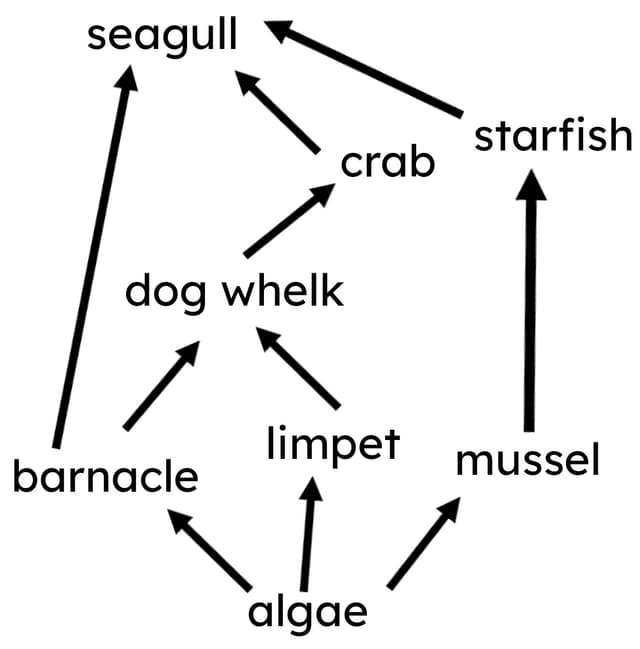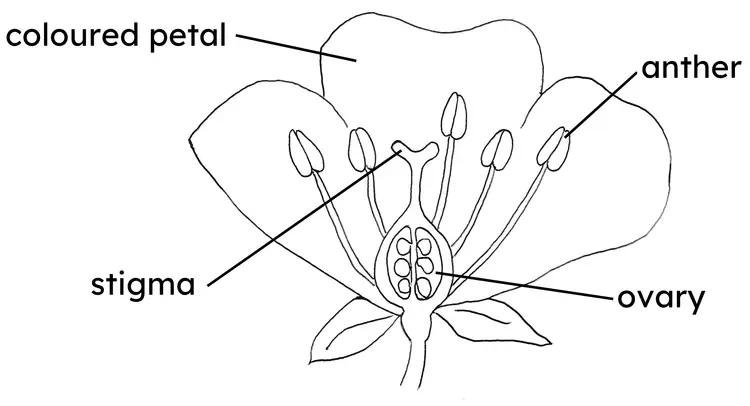Myths about teaching can hold you back
- Year 7
Pollination and human food security
I can describe the importance of pollination for food production.
- Year 7
Pollination and human food security
I can describe the importance of pollination for food production.
These resources were made for remote use during the pandemic, not classroom teaching.
Switch to our new teaching resources now - designed by teachers and leading subject experts, and tested in classrooms.
Lesson details
Key learning points
- All consumers, including humans, depend on producers because they make all of the food for the rest of the food chain.
- Plants produce edible seeds and fruits after pollination (transfer pollen from the anthers of flowers to the stigma).
- Many plants depend on animals such as insects to pollinate them, and on animals such as birds to disperse their seeds.
- Because of food chains and pollination, producers and consumers are interdependent.
- Pollinators are important, ensuring there is food security for humans (having enough food to feed the human population).
Keywords
Producer - A producer is an organism that makes its own food.
Pollen - Grains of pollen carry genetic material between flowers to enable flowering plants to reproduce.
Pollination - Pollination is the process where pollen is transferred to the female organs of a plant, to enable seeds to be made.
Interdependent - Organisms are interdependent when they rely upon each other for their survival.
Food security - Food security is having enough food to feed the human population.
Common misconception
The interdependence of organisms within ecosystems arise from more than just feeding relationships.
This lesson demonstrates that feeding relationships are important and that producers often rely on consumers for reproduction.
To help you plan your year 7 science lesson on: Pollination and human food security, download all teaching resources for free and adapt to suit your pupils' needs...
To help you plan your year 7 science lesson on: Pollination and human food security, download all teaching resources for free and adapt to suit your pupils' needs.
The starter quiz will activate and check your pupils' prior knowledge, with versions available both with and without answers in PDF format.
We use learning cycles to break down learning into key concepts or ideas linked to the learning outcome. Each learning cycle features explanations with checks for understanding and practice tasks with feedback. All of this is found in our slide decks, ready for you to download and edit. The practice tasks are also available as printable worksheets and some lessons have additional materials with extra material you might need for teaching the lesson.
The assessment exit quiz will test your pupils' understanding of the key learning points.
Our video is a tool for planning, showing how other teachers might teach the lesson, offering helpful tips, modelled explanations and inspiration for your own delivery in the classroom. Plus, you can set it as homework or revision for pupils and keep their learning on track by sharing an online pupil version of this lesson.
Explore more key stage 3 science lessons from the Ecosystems unit, dive into the full secondary science curriculum, or learn more about lesson planning.

Equipment
Licence
Prior knowledge starter quiz
6 Questions
Q1.What role do animals take in a food chain?
Q2. A is the place where an organism lives.
Q3.Which of the following are examples of a microhabitat?
Q4.How many food chains are in the food web diagram below?

Q5.In the food web diagram how many primary consumers are there?

Q6.Starting with the producer, sort the organisms into a food chain.
Assessment exit quiz
6 Questions
Q1.An organism that makes its own food is called a ...
Q2.Which of the following statements about producers are correct?
Q3.There are two main ways that plants can be pollinated. These are by the wind and by ...
Q4.Match the parts of a flower with their function:

attracts insects
is sticky to collect pollen
makes pollen
contains ovules that are fertilised to make seeds


